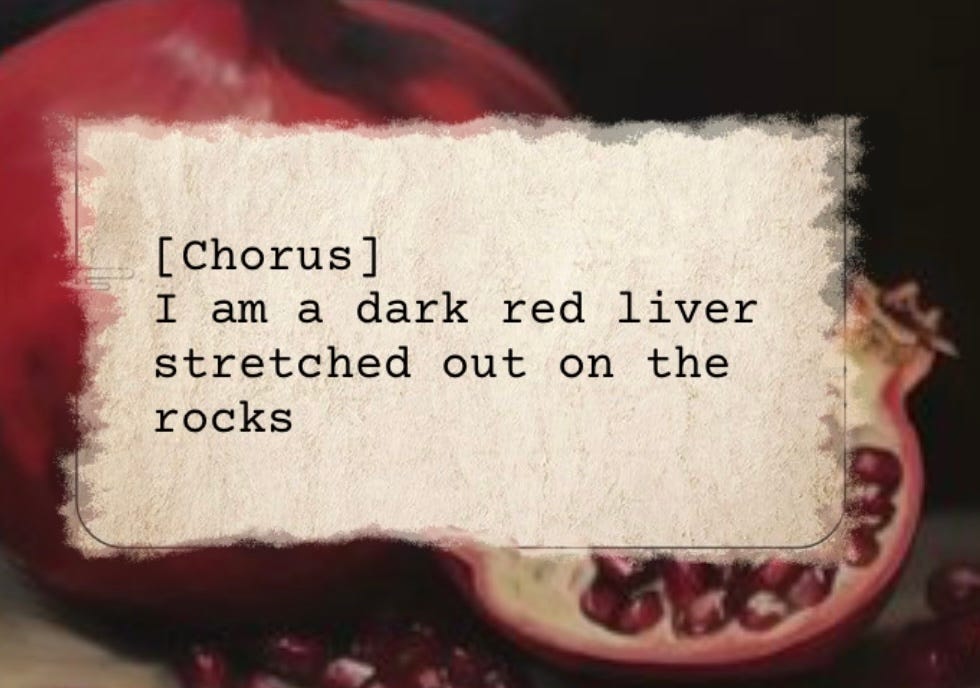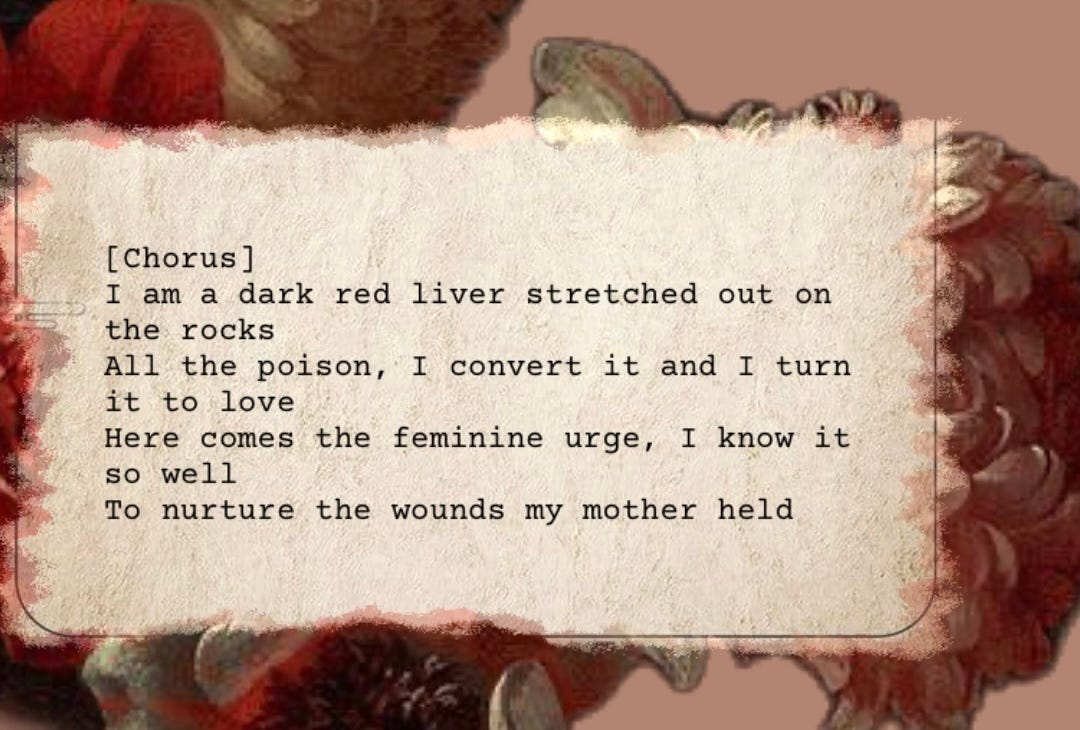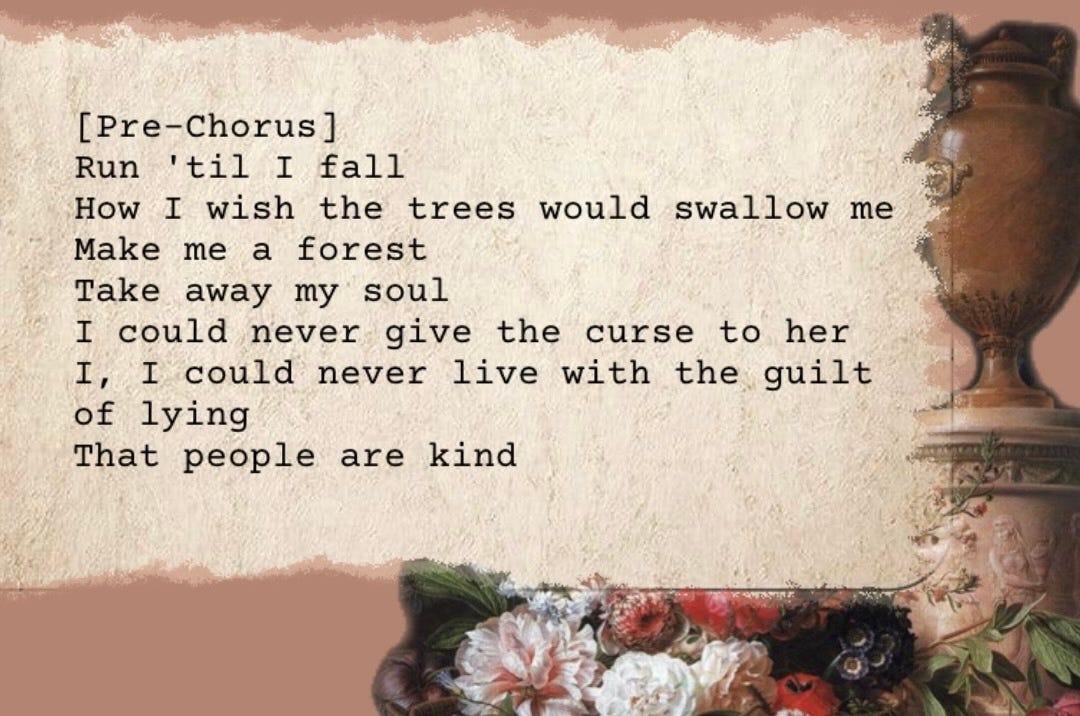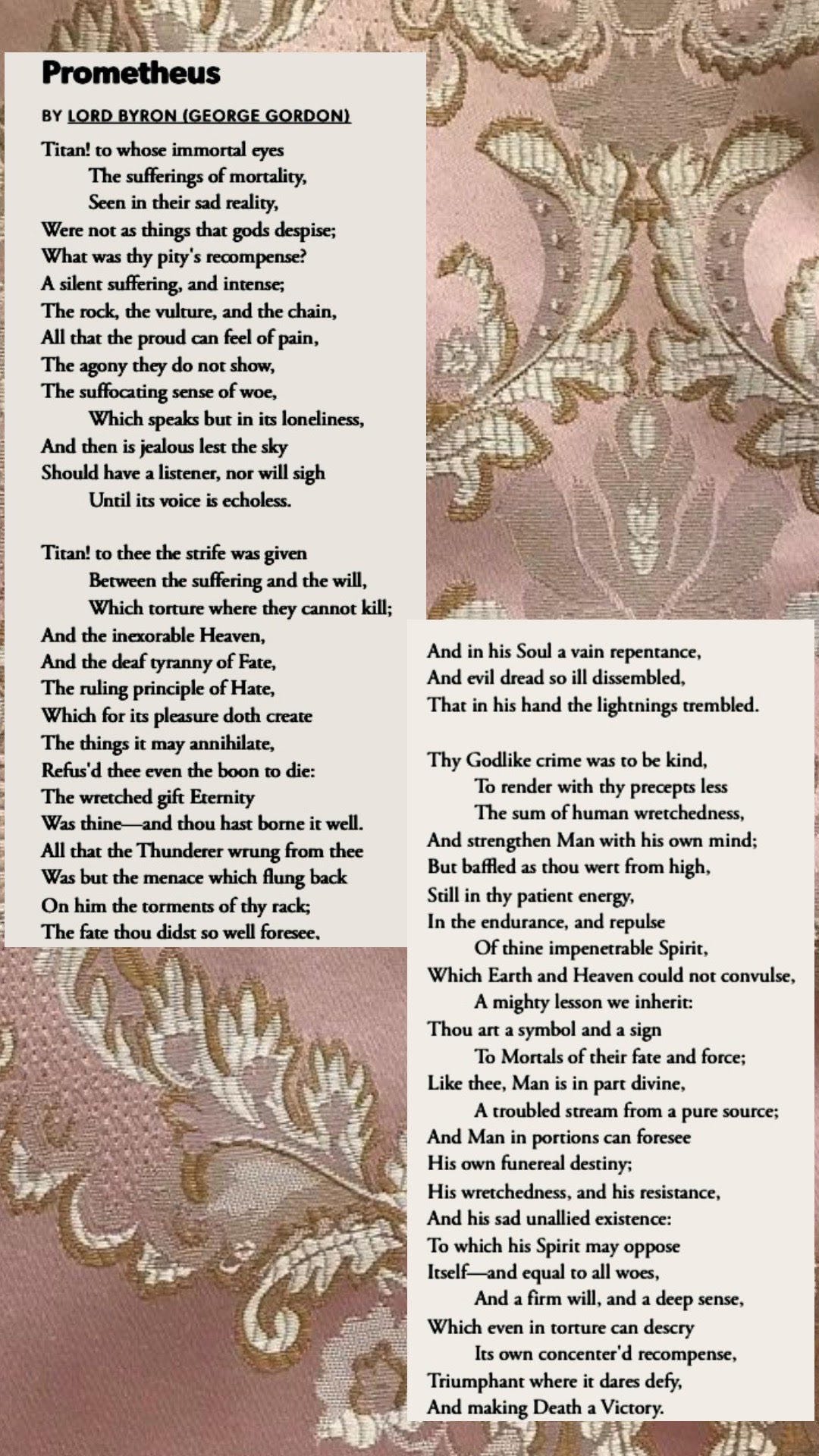The Feminine Urge and Prometheus (and Lord Byron too!)
Don't mind me as I ramble on a great song *puts on scholar cap*👩🎓
The Last Dinner Party, a British alternative indie rock band, is currently taking the world by storm with their latest album (Prelude to Ecstasy). When I first heard their song ‘Feminine Urge,’ I was utterly captivated. It felt like a painting coming to life—the imagery and instrumentals together made me hit the repeat button over and over. Not only is it a song that can perfectly be blasted at the highest volume in the car, it also can so easily sweep you into a whimsical intimacy when listening to it softly with earbuds.
Not only is this song just beautifully written, but it leaves so much imagery for us listeners to grasp onto!
But what first caught my interest is the line (which might be due to my obsession with Greek mythology and my tendency to find any excuse to go back and reread those stories)—
A contributor on Genius remarks that this verse can be understood as meaning “A dark red liver is a sign of a failing liver, suggestively from alcohol (poison). The idea of turning it to love can allude to the idea of love slowly killing the singer, despite the fact they give you the drunken feeling of love. No matter how good it is, it’s slowly destroying the singer”.
What the band has done with this song is dive into the complicated trauma passed down through generations of women and the close bond between mothers and daughters. It’s about realizing a mother’s humanity, mortality, and vulnerability. It also has us think about the future of motherhood and the tough choices about bringing a child into today’s world, and how the relationship between parent-child relationship changes over time.
But for me, what I found myself thinking about when I heard that verse was Prometheus, a mythological figure who defied the gods to help humans and suffered for it. Prometheus is referenced a lot throughout literature (Frankenstein, anyone?) and pop culture (there’s literally a movie called Prometheus). In the myth, Zeus punished Prometheus by chaining him to a rock where an eagle would eat his liver every day, only for it to regenerate overnight. This endless cycle of suffering reminds me of the song’s theme—the idea that the wounds and struggles of our mothers are passed down to us.
The song has the verse
We, as descendants, have to face these burdens and work toward a better future. The song really highlights the strength and resilience of women, who I interpret as being portrayed as almost divine in their ability to overcome struggles. It’s like in Greek mythology, where the humans created by Prometheus had to endure the consequences of Zeus’ vengeance, facing despair and disease unleashed by Pandora’s box.
And to really drive it home, I can’t help but draw on Lord Byron’s poem to compare the story of Prometheus with the song (can you tell I was an English major in undergrad?)
Lord Byron’s poem 'Prometheus' really reminds me of the song for how they both dive into the strength of the human spirit. While ‘Prometheus’ focuses on defying the gods and enduring their wrath, the song delves into how generational trauma affects women and the profound connections between mothers and daughters. Though they explore different themes, both works underscore the incredible strength and resilience of the human spirit in the face of adversity. They also remind us that we can learn from those who came before us and have the power to choose how we respond to our own struggles, shaping our paths with the wisdom and resilience we inherit from previous generations.









